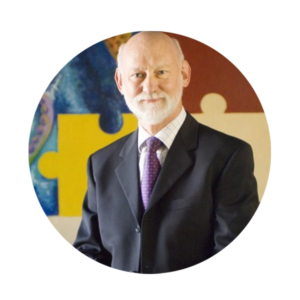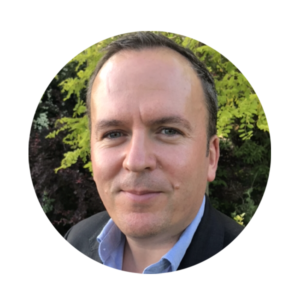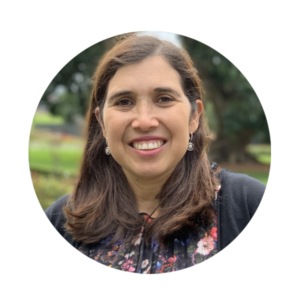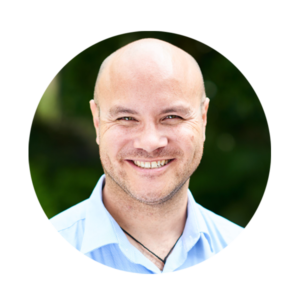Bookings closed. Child and Adolescent Intellectual Disability Psychiatry Network (CAIDPN), and ACAMH, host this online conference on Intellectual Disability. The topics are tailored to doctors (psychiatrists, paediatricians) working with children with intellectual disabilities.
In the afternoon, we will also hold the Annual General Meeting of the Child and Adolescent Intellectual Disability Psychiatry Network (CAIDPN) which is open to CAIDPN members only. It is free to join, so do get in touch with mini.pillay@btinternet.com
Programme
08:45 Online room opens for networking via the Chat facility
09:00 Emeritus Professor Bruce J. Tonge ‘Lessons from the Australian Child to Adult Development study, 30 years on’
Chair – Dr Paula McLorinan
10:00 Dr. Jennifer Galstuch-Leon ‘Intellectual disability in Rural and Remote Queensland’ Chair – Dr Paula McLorinan
10.45 Dr Saadia Arshad Case presentation: Young people admitted to National ID & Autism Specialist Inpatient Unit – Stories and Lessons Learnt Chair – Dr Paula McLorinan
11:40 Break
12:00 Dr. Ben Marlow ‘Medical comorbidities in children with Autism and intellectual disability: the importance of an MDT for very complex and challenging presentations’. Chair – Dr Annie Swanepoel
13:00 Lunch
13:10 Trainee Lunchtime Discussion Forum: an invitation for trainees to meet virtually
14:00 Annual General Meeting (For CAIDPN members only) Chaired by Dr. Heather McAllister, Dr. Heather Hanna, Dr. Mark Lovell
16:00 Close
About the talks
Dr. Ben Marlow ‘Medical comorbidities in children with Autism and intellectual disability: the importance of an MDT for very complex and challenging presentations’
- The types of medical comorbidities associated with ASD
- The subtypes of Autism that exist
- The impact of polypharmacy and the importance of MDT
About the Speakers

Emeritus Professor Bruce J. Tonge
Qualifications: MBBS, MD, DPM, MRC Psych, FRANZCP, Cert. Child Psych., RANZCP
Emeritus Professor Tonge has a distinguished record of teaching and research in child psychiatry and is a pioneer in the field of neurodevelopmental psychiatry. After an internship at the Royal Brisbane Hospital, he travelled to Great Britain to begin psychiatry training, including psychotherapy training at the Tavistock Clinic and a senior registrar position in child psychiatry at Cambridge University. This training set the scene for his subsequent career.
Professor Tonge returned to Australia in 1976 and was invited to help establish a child psychiatry clinic at the Austin in Melbourne. He was director of the child and adolescent psychiatry department at the Austin from 1980 to 1987. While there, he developed an interest in autism and helped establish autism assessment services across Victoria. He came to understand that children with developmental problems had a significant number of associated mental health problems. With his colleague Stewart Einfeld he subsequently developed the ‘developmental behavioural checklist’. This tool for assessing emotional and behavioural difficulties in children with developmental problems has now been translated into 21 languages and is used around the world. In 1989, he established the internationally recognised Centre for Developmental Psychology and Psychiatry at Monash University. He led this centre for 20 years. The centre provides research and teaching in developmental psychiatry and psychology. He has research and teaching interests in the area of developmental psychiatry with a particular focus in the areas of Autism Spectrum Disorders, behavioural and emotional disturbance in children and adolescents with intellectual disability and treatment outcome studies in childhood anxiety and depressive disorders.
Publications include: 22 books/manuals; 68 book chapters; 317 papers; videos webinars and many invited addresses. Professor Tonge received the Australian Society for Study of Intellectual Disability National Research Prize 1991; World Psychiatric Association Distinguished Service Award 2007; Victorian Public Healthcare Award for “Outstanding Achievement in Mental Healthcare”, 2009; Australasian Society for Psychiatric Research Founders Medal for “Contribution of significance to psychiatric research” 2010, and has been awarded competitive grants totalling $47.5M. In 2019 Professor Tonge was awarded The RANZCP College Citation to honour his service to the field of psychiatry.

Ben (MBiochem MBBS MRCPCH PGCME) is a Consultant Paediatrician with expertise in managing children with a range of neurodevelopmental disorders; Autism, ADHD, Cerebral Palsy, Learning disability and Genetic disorders. He is Clinical Director for The Synapse Centre for Neurodevelopment ESNEFT. He has a keen interest in the neurobiology and genetics of neurodevelopmental disorders, especially the fields of neuroimmunology, metabolism and the microbiome. He is very keen to help advocate and advance the translation of science into treatments for children with neurodisabling conditions, particularly within the field of Autism. He has completed a Post Graduate Certificate in Medical Education (PGCME). He is an Associate Clinical Lecturer at Anglia Ruskin University (Chelmsford). Ben completed his medical training at University College London (UCL). Prior to his role as a doctor, he completed a Masters in Biochemistry and worked for GlaxoSmithKline (GSK) and UCB Pharma in Research and Development. He also completed a research fellowship at the University of Florida. He is a Member of the Royal College of Paediatrics and Child Health, British Association of Childhood Disability (BACD) and British Paediatric Neurology Association (BPNA). SRG Board member for BACD, and a regular writer for the publication ‘Autism Eye’.

Dr Jennifer Galstuch–Leon is an Intellectual disability Psychiatrist. She did her Psychiatry training at University College London, UK and later obtained Australian fellowship in 2010. Jennifer is also an associate fellow of the Royal Australasian college of Medical administrators completing the RACMA leadership for clinician program in 2021. She has 13 years clinical experience in intellectual and developmental disabilities managing complex cases in community and forensic settings across the state of QLD. She works at the Specialist Mental Health Intellectual disability services In Queensland Health, Australia. This is State-wide service that provides consultation-liaison services to assist Hospital health services and primary and tertiary health teams to safely manage clients with intellectual disabilities. She provides multidisciplinary assessment for patients with Foetal alcohol spectrum disorder and deliver expert training in this area. Jennifer has an active role with Indigenous communities in Far North and Western Queensland.
Dr Saadia Arshad is Consultant in Intellectual Disabilities and Neurodevelopmental Disorders at Central and North West London NHS Foundation Trust. She is trained at Charing Cross Hospital, King’s College and Maudsley Hospital. Her specialist areas of interest are service development, Epilepsy in PWID and Neurodevelopmental Disorders across all ages.

Mark is a dual-trained Consultant Child and Adolescent Learning Disability Psychiatrist working for 1 of the UK’s largest LD CAMHS teams. He works for Tees, Esk and Wear Valleys NHS Foundation Trust (TEWV) and covers the South Tees area along with a multidisciplinary team. Mark has previously held positions within the British Medical Association and the Royal College of Psychiatrists. He has had involvement within projects for the Royal College of Psychiatrist and the Royal College of Paediatrics and Child Health. He is a member of the Child and Adolescent Intellectual Disability Psychiatry Network (CAIDPN) and has particular interests in Autism and Challenging Behaviour within the context of Intellectual Disabilities. Mark is also ACAMH’s Director of CPD and Training.
About CAIDPN
CAIDPN is a group of psychiatrists across the UK and Ireland who work with children who have an intellectual disability and mental health needs. The role of the network is to encourage sharing of skills, knowledge and experience, to provide peer support. This includes working with academic partners to advance clinical research that will benefit the care and services for this group of young people. We aim to arrange four conferences each year which support continuing professional development and allow networking and peer discussion of complex cases.


